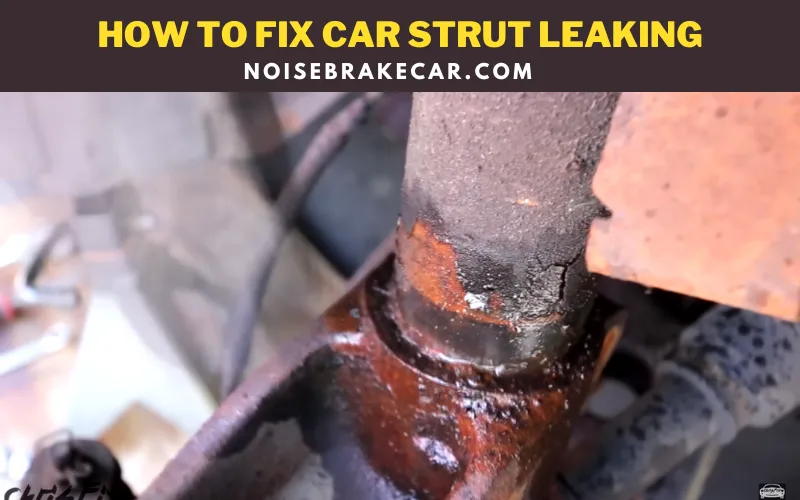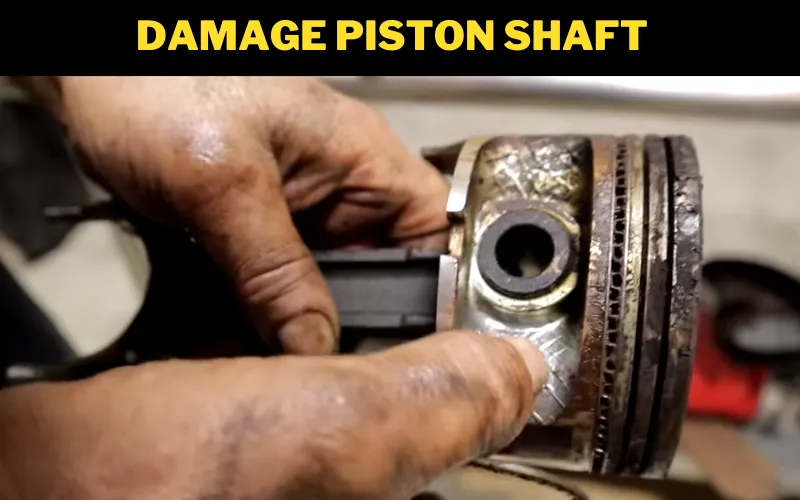Shock absorbers use a piston and hydraulic fluid to create resistance as the vehicle moves up and down over various bumps in the road. Shock absorber leaks are caused by a damaged piston rod, faulty shock absorber seals, worn chrome parts, oil mist residue and regular wear and tear. A leak in the suspension can cause a rough ride on the road and can even endanger your safety.
Cause Behind leaking Shocks
When a car strut leak occurs, you typically notice a reduction in shock performance, resulting in a rougher ride, unusual noises, uneven tire wear, and reduced steering and braking performance. Alternatively, you may be confusing natural shock surgery with a leak.
1) Oil Mist Residues
Oil mist residues are a completely natural part of the intended function of shock absorbers. It occurs very often when the shock absorbers are very dry, otherwise you don’t notice it. Oil mist occurs when the piston rod distributes a very small amount of oil from the cylinder to the seal.
The stem looks wet but does not feel wet when touched. However, if oil mist comes out from inside the shock absorbers, you cannot add oil. In this case, the shock absorbers must be replaced preferably in pairs (front and rear).

2) Defective shock absorber seals
Shock seals protect the inside of your shock absorbers from dirt and grime from the outside. Over time, seals can become brittle and tear easily. Stones, gravel and other foreign objects can also damage the seals of shock absorbers and lead to possible leaks.
More Information: What is Axle Seal Leak and How to Fix?
3) Chrome trim worn
Your car’s shock absorbers may be leaking due to a worn coating on one of the connecting rods. If the shock absorbers are not adjusted correctly, the coating will wear out. The shock seal and road guide will suffer more damage if the misaligned shock continues to operate. When these parts wear out leaks occur in the shock absorbers.
4) Damage Piston Shaft
A damage shaft can cause shock absorber fluid leakage. If the shaft has scratches or other damage, the seal may fail, resulting in oil leaks and reduced performance. These scratches and dents can be caused by flying debris scraping the surface or by improper shaft installation.
5) Wear and Tear
General wear and tear eventually lead to leaks in the front and rear shocks. Your shock absorbers often suffer abuse and become leaky and need to be replace.
What is Replacement Shock Price?
Suspension failure can result in uneven driving and even jeopardize your safety. If your car has leaking shock absorbers or struts, it best to replace them as soon as possible. Replacement parts cost between $10 and $3,800.

Can You Drive a Car with Leaking struts?
If your shock absorbers are leaking frequently, your vehicle may not be drivable and you could become a hazard on the roads.
It is best not to use the vehicle until is repaired. When using a vehicle, drive more slowly and never at a speed that makes you feel like you are swimming.
Maintain a greater distance from the vehicle in front as the emergency braking distance increases as worn shock absorbers can cause wheels and tires to float, reducing grip when braking and cornering.
Fluid Leaks from Shock Absorbers or Struts
Fluid leaking from the shocks or struts is a sure sign that the seals are damaged and may be leaking internal fluids. This may affect the ability of the shock absorbers and damper to control the vehicle.
To determine if there is a leak, check the shock absorber housing and struts for discoloration or dirt buildup. Then take your vehicle to a licensed mechanic to properly assess the leak and repair the problem.
What to Do if a Struts is Leaking?
Once you have determined that the leak is caused by the shock absorbers, replace them as soon as possible! If you continue drive with worn shock absorbers, your ride will be constantly unstable and very dangerous worse, the damage is not just limited to the shock absorbers: the tires will soon wear unevenly or have a harder time making contact with the road. This increases the risk of slipping or even rolling off the road.